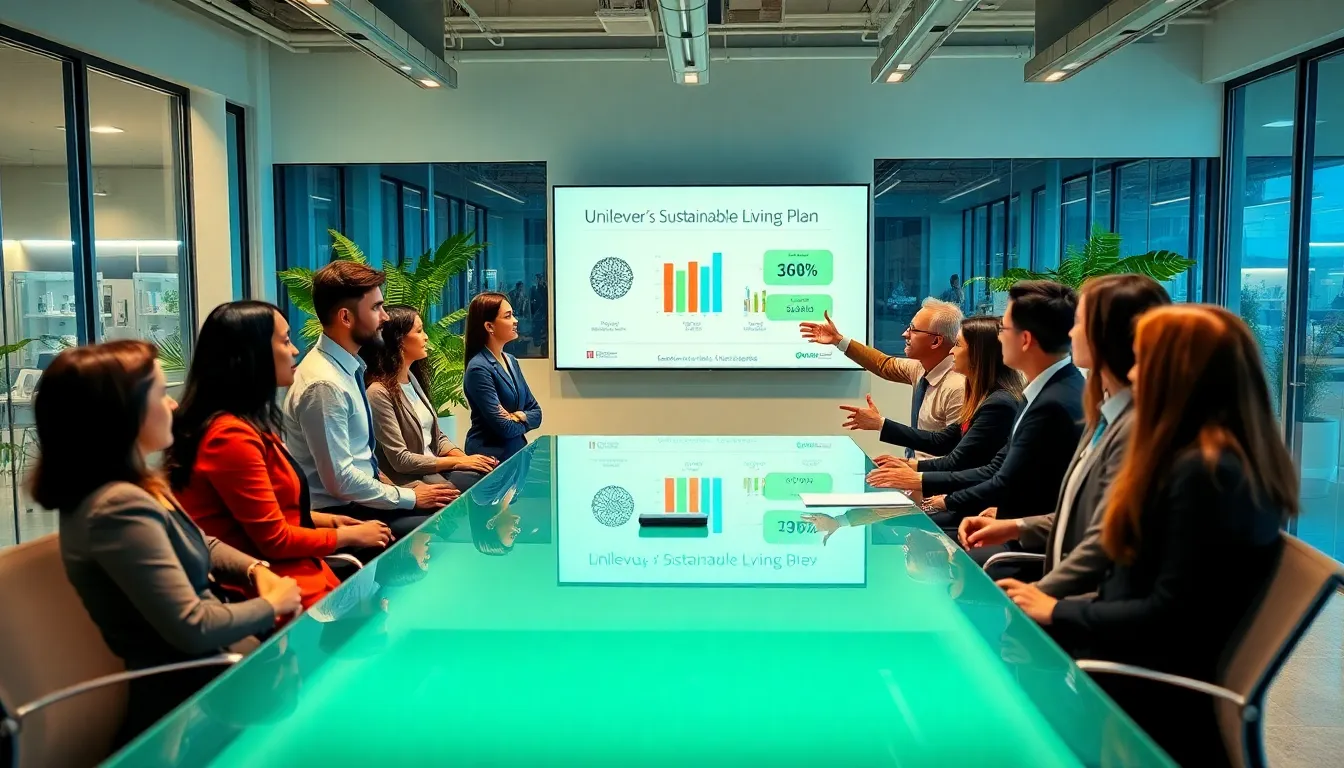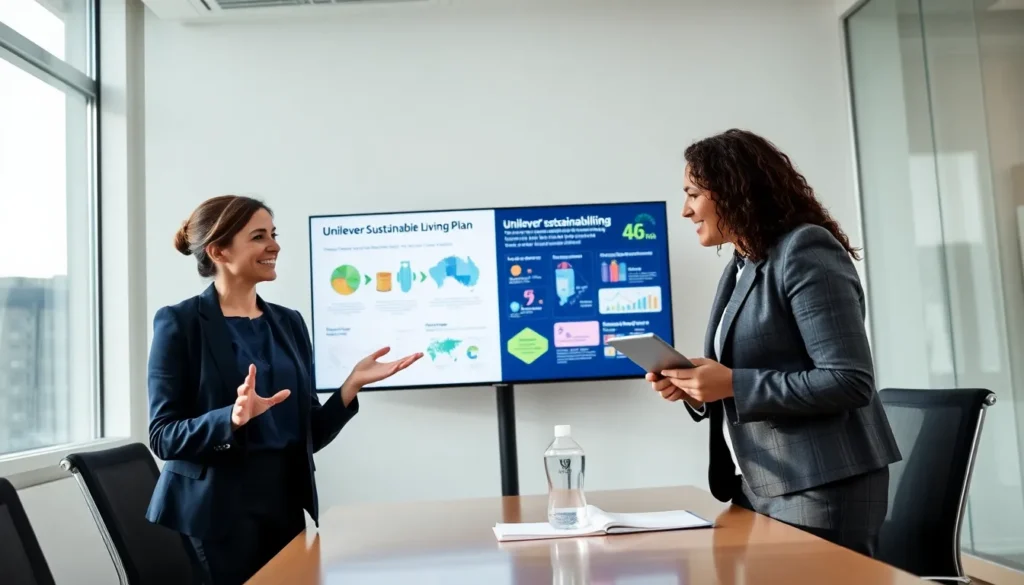Table of Contents
ToggleThe Unilever Sustainable Living Plan isn’t just a corporate mantra: it’s a bold promise. Imagine a world where products not only clean your home but also help clean the planet, what a refreshing idea. Unilever aims to make sustainability the norm rather than the exception, tackling environmental issues while enhancing lives globally. So, why should we care? Well, if your shampoo can also stand up for social causes, wouldn’t you want to be part of that movement? Let’s jump into this ambitious game plan and see how Unilever is changing the business landscape for good.
Overview of the Unilever Sustainable Living Plan

Unilever laid the groundwork for its Sustainable Living Plan in 2010, recognizing the urgent need for sustainable business practices. This isn’t merely a proposal: it represents an integrated approach to addressing some of the world’s most pressing issues, climate change, resource scarcity, and social inequality. By intertwining sustainability with its core business strategy, Unilever has positioned itself as a leader in promoting a greener future while also exploring new market opportunities. The plan underscores Unilever’s commitment to enhance health and well-being, reduce its environmental footprint, and contribute positively to society.
Roughly a decade in, the Sustainable Living Plan not only serves as a guiding framework for Unilever but also as a challenge to competitor companies. The vision is deceptively simple: to demonstrate that sustainable business is not only possible but profitable.
Key Goals and Objectives
To drive its mission forward, Unilever has outlined several key goals that are as ambitious as they are critical.
Environmental Sustainability Initiatives
One central pillar of this plan focuses on reducing the environmental impact of its products and supply chain. Unilever aims to halve its greenhouse gas emissions by 2030. With initiatives targeted at improving ingredient sourcing, transitioning to renewable energy sources, and reducing water use, it’s clear that Unilever is on a quest to align its operations with a sustainable ethos. This includes integrating biodegradable packaging and striving for a circular economy, where waste is minimized, and resources are conserved.
Social Impact and Community Engagement
On the social front, Unilever is keen on improving the livelihoods of those in its supply chain and fostering inclusive growth. The initiative focuses on enhancing women’s empowerment and addressing social inequalities in communities where it operates. By engaging local communities and working with various stakeholders, Unilever aims to uplift living standards while promoting fair work practices.
Economic Sustainability Practices
Beyond environmental and social dimensions, Unilever is equally concerned with economic sustainability. This entails driving long-term growth not only for the corporation but also for the broader economy. Engaging suppliers in sustainability training is one of several tactics Unilever employs to ensure that sustainability is part of the entire supply chain, from raw materials to finished products.
By fostering sustainable agriculture practices among farmers, Unilever is contributing to food security and sustainable livelihoods. These practices eventually enhance the resilience of local economies. Besides, as consumer awareness increases about sustainability, Unilever’s commitment is likely to pay dividends in brand loyalty and revenue growth.
Measuring Success: Metrics and Reporting
To ensure accountability and transparency, Unilever has developed a robust framework for measuring the success of its Sustainable Living Plan. It employs a variety of metrics, from carbon footprint reductions to community well-being indices, to track progress. These metrics provide valuable insights, not just for shareholders, but also for consumers who demand higher social responsibility from brands.
Unilever regularly publishes reports outlining its progress and challenges, demonstrating a willingness to adapt and grow. This candid approach builds trust and reinforces their role as a pioneer in corporate sustainability.
Future Directions and Challenges Ahead
Even though significant progress, challenges remain. Climate change continues to pose existential threats, and shifting consumer behavior in a post-pandemic world means Unilever must stay agile. Future directions may include increased collaboration with governments and NGOs to amplify impact.
Emerging technologies could also play a critical role in Unilever’s strategy, offering solutions that enhance sustainability while streamlining operations. But, a balance must be struck to ensure that innovation doesn’t overshadow community needs, an approach that requires careful navigation.




